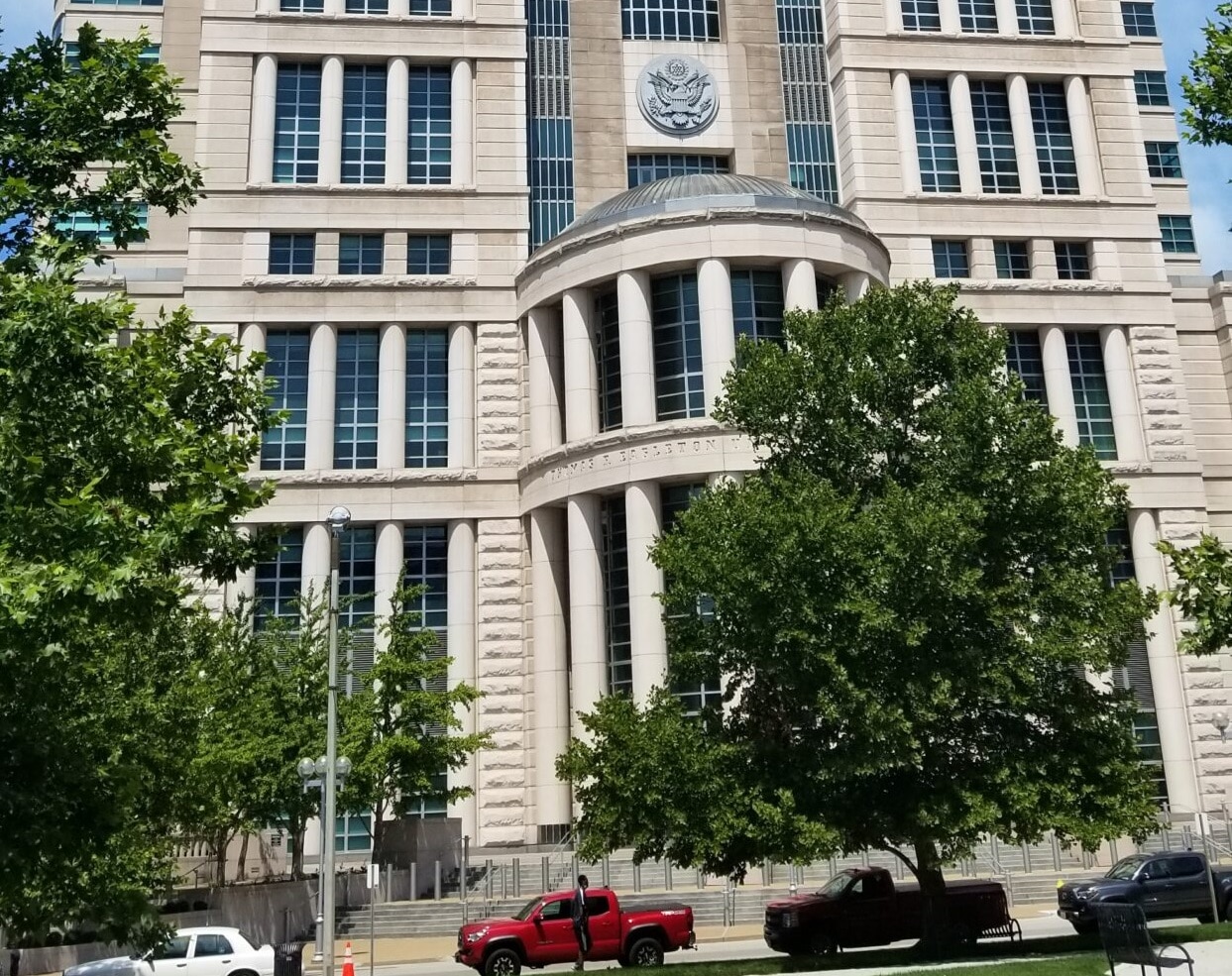(CN) — A divided three-judge panel of the Eighth Circuit Monday ruled private plaintiffs do not have the ability to sue under Section 2 of the Voting Rights Act.
After reviewing the landmark voting law, the panel concluded that only the attorney general of the United States has the power to enforce Section 2 of the act, which prohibits states from enacting any voting standard, including maps, that would deny or limit any citizen’s right to vote based on their race or color.
“Many statutes simply say when a private right of action is available,” U.S. Circuit Judge Stras, a Donald Trump appointee, wrote in the new opinion.
He noted that the Civil Rights Act of 1964, passed one year before the Voting Rights Act, specifies who can sue — a “person” — if unlawful discrimination exists or there are grounds to believe someone is about to engage in unlawful discrimination.
“When those details are missing, it is not our place to fill in the gaps, except when ‘text and structure’ require it,” Stras wrote. “Under the modern test for implied rights of action, Congress must have both created an individual right and given private plaintiffs the ability to enforce it.”
The decision upholds a lower court’s dismissal of the case brought by the Arkansas State Conference NAACP and the Arkansas Public Policy Panel, which challenged a new voting map that took effect in December 2021.
In their complaint, the plaintiffs said the reapportionment of Arkansas House of Representatives’ seats diluted the strength of Black voters. They sought a declaration from the U.S. District Court for the Eastern District of Arkansas that the redistricting plan violated Section 2 of the Voting Rights Act.
In his order dismissing the case in February 2022, U.S. District Judge Lee Rudofsky — also a Trump appointee — said there was a “strong merits case” that some of the voting districts the plaintiffs challenged were unlawful under Section 2, but that he was unable to decide on the merits, because Congress had not expressly provided a private right of action to enforce the law.
“After a thorough analysis of the text and structure of the Voting Rights Act, and a painstaking journey through relevant case law, the court has concluded that this case may be brought only by the attorney general of the United States,” Rudofsky wrote in his 42-page opinion, in which he gave the federal government five days to join the case as a plaintiff and continue the litigation before dismissal.
The plaintiffs said in an appellate brief that every court that has addressed the issue of the existence of the private right of action under Section 2, including the U.S. Supreme Court and other federal appeals courts, has recognized it.
“And for good reason,” the plaintiffs said in the brief. “That conclusion follows from the VRA’s plain text and structure. And it is consistent with the VRA’s legislative history and decades-long congressional understanding. Indeed, when Congress last amended Section 2 by explicitly expanding its reach to voting laws that have racially discriminatory results, it expressly ‘reiterat[ed] the existence of the private right of action under Section 2.’”
They added that the district court’s decision “disregards and effectively encourages other courts to ignore binding vertical precedent.”
In a dissent from the Eighth Circuit panel’s majority ruling Monday, Chief U.S. District Judge Lavenski Smith, a George W. Bush appointee, said he would have followed existing precedent until Congress amends the statute or the Supreme Court directly rules on the existence of a private right of action under Section 2.
“Rights so foundational to self government and citizenship should not depend solely on the discretion or availability of the government’s agents for protection,” Smith wrote. “Resolution of whether [Section 2] affords private plaintiffs the ability to challenge state action is best left to the Supreme Court in the first instance.”
U.S. Circuit Judge Raymond Gruneder, also a George W. Bush appointee, sided with Stras in the 2-1 opinion that modified the lower court’s dismissal only to make it a dismissal with prejudice.
“By failing to reverse the district court’s radical decision, the Eighth Circuit has put the Voting Rights Act in jeopardy, tossing aside critical protections that voters fought and died for,” ACLU Voting Rights Project Director Sophia Lin Lakin said in a statement.
Subscribe to Closing Arguments
Sign up for new weekly newsletter Closing Arguments to get the latest about ongoing trials, major litigation and hot cases and rulings in courthouses around the U.S. and the world.









